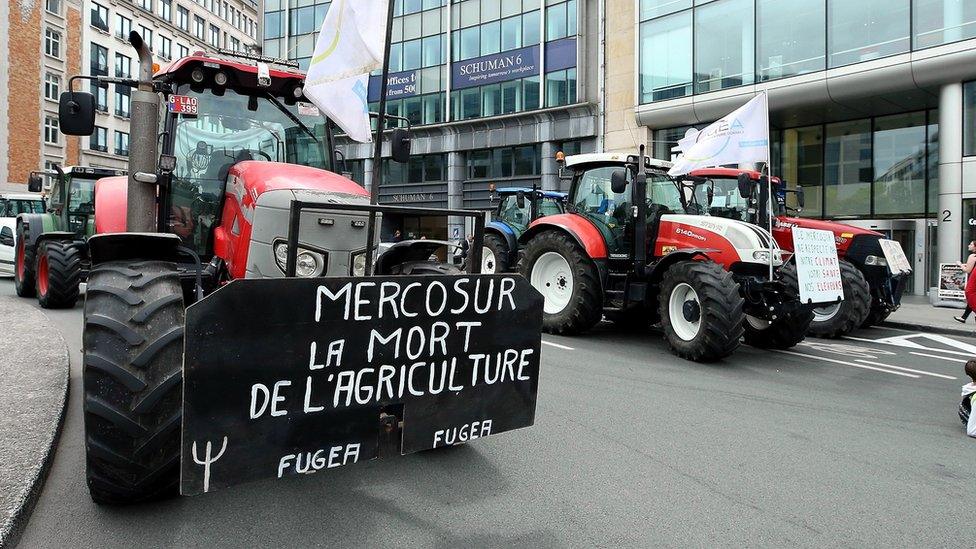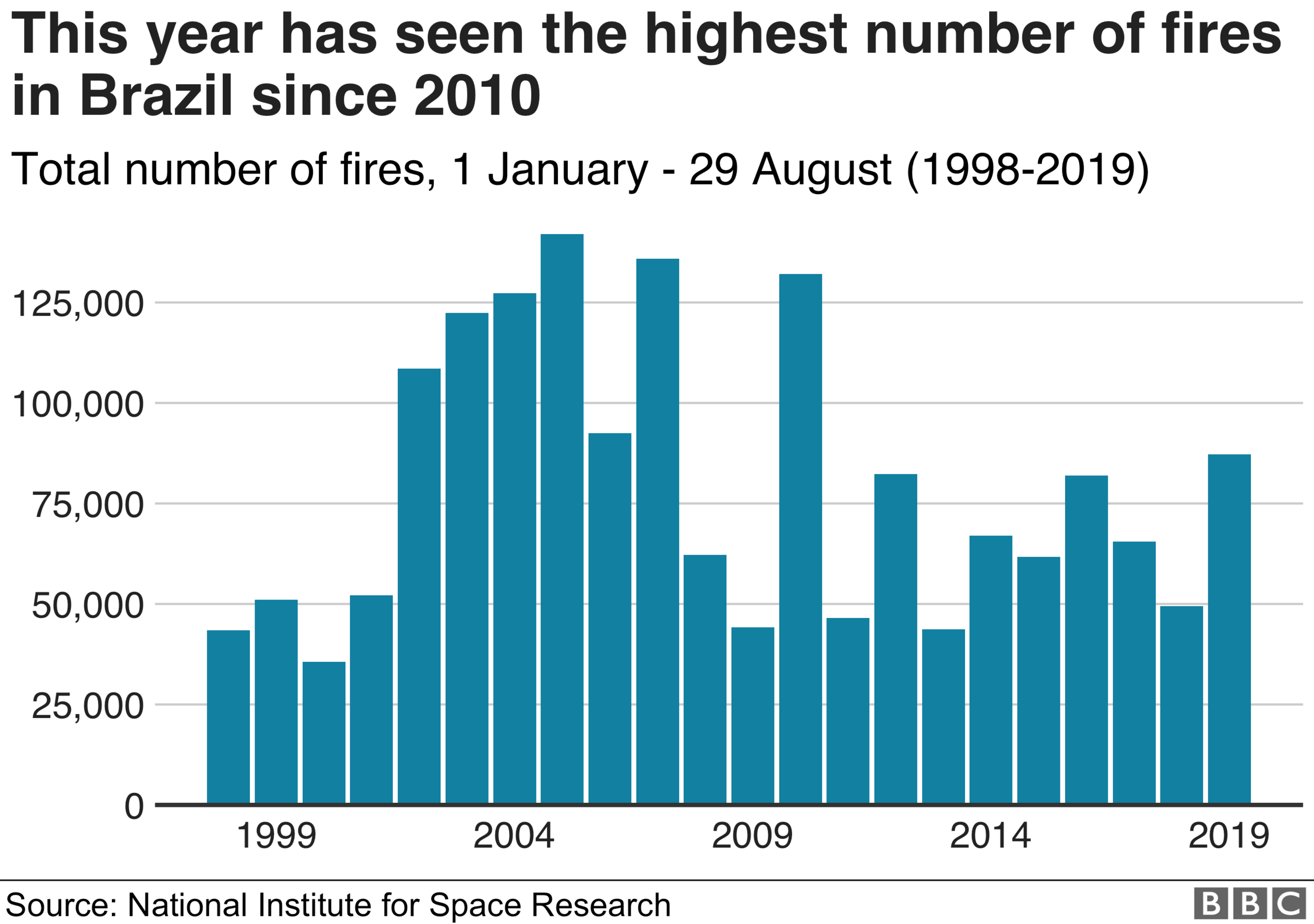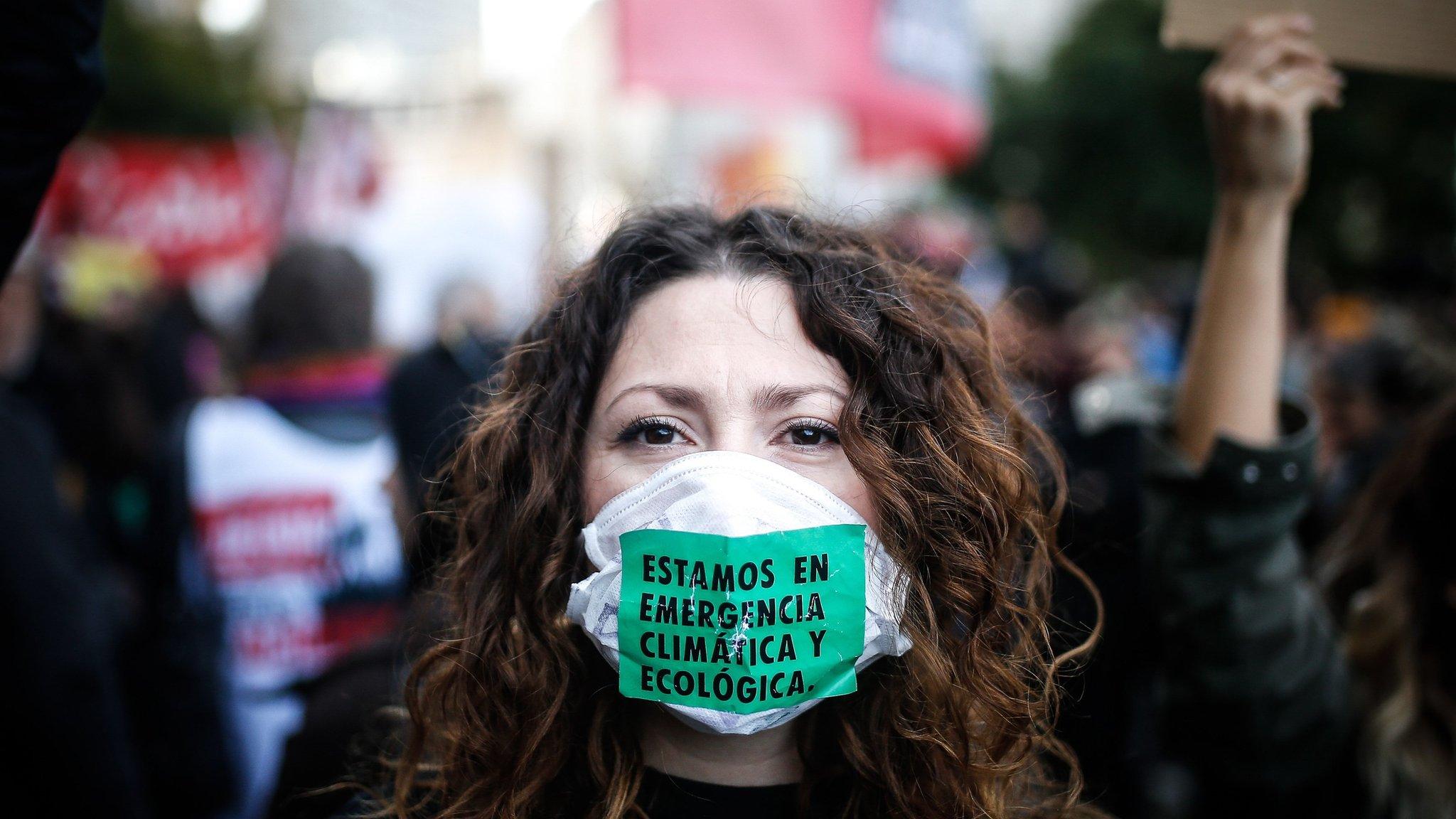Austria blocks EU-Mercosur trade deal with South America
- Published
- comments

Agriculture groups were among the first to object to the EU deal, before fires in the Amazon rainforest drew global attention
MPs in Austria have dealt a blow to the EU's landmark trade deal with South America's economic bloc, by demanding a government veto on the deal.
The draft free trade agreement took 20 years to complete and the EU has described it as its biggest so far.
France and Ireland have already warned they will reject the deal if Brazil does not do more to curb fires in the Amazon rainforest.
Austrian groups say the deal must do more to tackle environment issues.
All but one of Austria's main parties rejected the deal in a parliamentary sub-committee, from the far right to the centre left.
Mercosur includes four South American economies - Brazil, Argentina, Uruguay and Paraguay. A fifth member, Venezuela, is currently suspended.
Without backing from every government in the EU, the Mercosur deal cannot go through.
Why do Austrian MPs dislike the deal?
Jörg Leichtfried of the centre-left SPÖ hailed the decision as a "great success for consumers, the environment and animal welfare as well as human rights", warning that it would have been bad for climate protection and labour rights in South America.
Why the Amazon rainforest helps fight climate change
Austria's trade union federation ÖGB had campaigned against the deal, arguing it had not sought binding rules on workers and the environment but focused on the interests of industry rather than people.
Green MEP Monika Vana praised the decision as "laying down a marker in Europe".
Austria's federation of industry, however, has backed the Mercosur deal, warning against "populist scaremongering and free-trade myths" and insisting that the deal includes a commitment to the Paris Climate Agreement and the fight against deforestation in the Amazon.


The liberal Neos party was alone in rejecting a veto, calling instead for the deal to be renegotiated.
Austrians are currently in the grip of an election campaign ahead of a 29 September vote. The centre-right alliance with the far-right Freedom Party fell apart in May amidst a corruption scandal.
What is France's objection?
The deal was announced amid great fanfare in June, but weeks later Europe's leaders were shocked by the spread of fires raging in the Amazon rainforest.
Brazil's President, Jair Bolsonaro, was accused by France's Emmanuel Macron of lying over his stance on climate change.
When Mr Macron pledged millions of dollars in aid to help reforest the Amazon, Mr Bolsonaro hit back by accusing him of treating it as a "colony or a no-man's land".
Allow X content?
This article contains content provided by X. We ask for your permission before anything is loaded, as they may be using cookies and other technologies. You may want to read X’s cookie policy, external and privacy policy, external before accepting. To view this content choose ‘accept and continue’.

Ireland and Luxembourg also threatened to block the deal because of the far-right Brazilian leader's environmental policy.
What's in the EU deal?
The EU is already Mercosur's biggest trade partner, accounting last year for 20.1% of the bloc's trade in goods such as food, drink, farm products and tobacco. EU exports account for only 2.3% of the European bloc's total and tariffs on EU products are as high as 35% for cars and clothing.
The agreement, which would cover 780 million people, aims to remove trade barriers, external and promote high standards, with a commitment to sustainable management and conservation of forests and respect for labour rights.
European Council President Donald Tusk said last month it was difficult to see the accord getting through while fires were continuing in the Amazon rainforest.
Allow X content?
This article contains content provided by X. We ask for your permission before anything is loaded, as they may be using cookies and other technologies. You may want to read X’s cookie policy, external and privacy policy, external before accepting. To view this content choose ‘accept and continue’.

- Published23 August 2019
